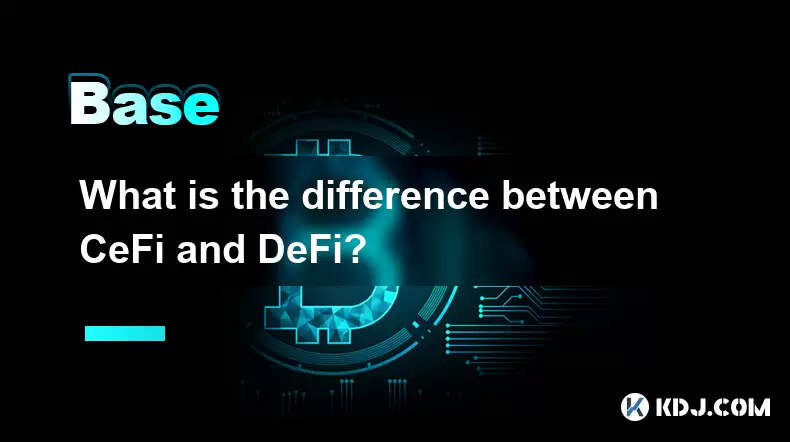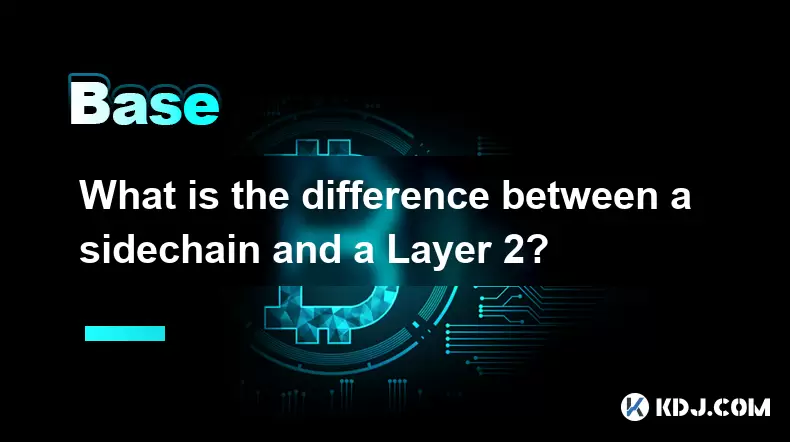-
 Bitcoin
Bitcoin $114400
1.32% -
 Ethereum
Ethereum $3499
2.20% -
 XRP
XRP $2.922
4.26% -
 Tether USDt
Tether USDt $0.0000
0.03% -
 BNB
BNB $752.6
1.53% -
 Solana
Solana $161.8
1.64% -
 USDC
USDC $0.9999
0.01% -
 TRON
TRON $0.3267
1.32% -
 Dogecoin
Dogecoin $0.1991
3.02% -
 Cardano
Cardano $0.7251
3.29% -
 Hyperliquid
Hyperliquid $38.32
3.36% -
 Stellar
Stellar $0.3972
7.58% -
 Sui
Sui $3.437
2.74% -
 Chainlink
Chainlink $16.29
3.65% -
 Bitcoin Cash
Bitcoin Cash $545.3
3.70% -
 Hedera
Hedera $0.2482
7.49% -
 Ethena USDe
Ethena USDe $1.001
0.03% -
 Avalanche
Avalanche $21.40
2.02% -
 Toncoin
Toncoin $3.579
1.56% -
 Litecoin
Litecoin $109.3
2.20% -
 UNUS SED LEO
UNUS SED LEO $8.951
-0.18% -
 Shiba Inu
Shiba Inu $0.00001220
2.75% -
 Polkadot
Polkadot $3.613
2.99% -
 Uniswap
Uniswap $9.173
3.78% -
 Monero
Monero $302.6
2.62% -
 Dai
Dai $0.0000
0.00% -
 Bitget Token
Bitget Token $4.320
1.52% -
 Pepe
Pepe $0.00001048
3.40% -
 Cronos
Cronos $0.1314
4.33% -
 Aave
Aave $259.4
3.54%
What impact do changes in the tax policies of various governments on cryptocurrencies have on the price of Dogecoin?
Government tax policy changes can influence the Dogecoin price by shaping demand, supply, volatility, and long-term investor confidence through direct taxation of transactions and indirect costs on related businesses.
Oct 22, 2024 at 06:00 am

Impact of Government Tax Policy Changes on Dogecoin Price
The taxation of cryptocurrencies, including Dogecoin, is a complex and evolving landscape. Governments worldwide have implemented various tax policies, which have direct and indirect effects on the price of Dogecoin.
Direct Taxation of Cryptocurrency Transactions
- Capital Gains Tax: Several countries, such as the United States, Japan, and the United Kingdom, impose capital gains tax on profits from cryptocurrency trading. When an investor sells Dogecoin for a profit, they may be liable for taxes on the difference between their purchase price and the sale price. This can lead to increased selling pressure and a potential decrease in Dogecoin's price.
Indirect Taxation on Crypto-Related Businesses
- Value-Added Tax (VAT): Many governments impose VAT on the sale of goods and services, including cryptocurrency transactions facilitated by exchanges or brokers. This can add an additional cost to trading and may discourage some investors, resulting in reduced demand for Dogecoin.
- Corporate Income Tax: Businesses operating in the cryptocurrency industry, such as exchanges and mining companies, are subject to corporate income tax in their respective jurisdictions. This can increase the operating expenses of these businesses, potentially limiting their ability to offer competitive services and affecting the overall supply and demand dynamics of Dogecoin.
Policy Uncertainty and Regulatory Changes
- Unclear Regulations: Lack of clear and consistent tax regulations for cryptocurrencies can create uncertainty among investors and businesses, leading to reduced trading volumes and price volatility.
- Regulatory Scrutiny: Government agencies are increasingly focusing on cryptocurrency regulation, which may lead to changes in tax policies. The anticipation of such changes can impact investor sentiment and trigger price fluctuations.
Impact on Dogecoin Price
The cumulative effect of these factors can influence the price of Dogecoin in several ways:
- Reduced Demand: Investors may become hesitant to purchase Dogecoin if they face significant tax burdens or regulatory uncertainties.
- Increased Supply: Businesses may withdraw their support or limit their operations due to higher operating costs, leading to a potential increase in the supply of Dogecoin for sale.
- Volatility: Changes in tax policies or regulatory frameworks can trigger market volatility, as investors react to the news and adjust their trading strategies.
- Long-Term Confidence: Stable and predictable tax policies can foster long-term investor confidence and encourage wider adoption of Dogecoin.
Conclusion
Government tax policy changes can impact the price of Dogecoin through direct taxation, indirect costs on businesses, and the creation of uncertainty. To mitigate these effects, governments should provide clear and consistent tax regulations to encourage transparency, innovation, and investor confidence in the cryptocurrency market. By balancing tax revenue needs with the promotion of economic growth, governments can play a crucial role in fostering the adoption and broader acceptance of cryptocurrencies like Dogecoin.
Disclaimer:info@kdj.com
The information provided is not trading advice. kdj.com does not assume any responsibility for any investments made based on the information provided in this article. Cryptocurrencies are highly volatile and it is highly recommended that you invest with caution after thorough research!
If you believe that the content used on this website infringes your copyright, please contact us immediately (info@kdj.com) and we will delete it promptly.
- Cryptocurrency, Altcoins, and Profit Potential: Navigating the Wild West
- 2025-08-04 14:50:11
- Blue Gold & Crypto: Investing Disruption in Precious Metals
- 2025-08-04 14:30:11
- Japan, Metaplanet, and Bitcoin Acquisition: A New Era of Corporate Treasury?
- 2025-08-04 14:30:11
- Coinbase's Buy Rating & Bitcoin's Bold Future: A Canaccord Genuity Perspective
- 2025-08-04 14:50:11
- Coinbase's Buy Rating Maintained by Rosenblatt Securities: A Deep Dive
- 2025-08-04 14:55:11
- Cryptos, Strategic Choices, High Returns: Navigating the Meme Coin Mania
- 2025-08-04 14:55:11
Related knowledge

What is the difference between CeFi and DeFi?
Jul 22,2025 at 12:28am
Understanding CeFi and DeFiIn the world of cryptocurrency, CeFi (Centralized Finance) and DeFi (Decentralized Finance) represent two distinct financia...

How to qualify for potential crypto airdrops?
Jul 23,2025 at 06:49am
Understanding What Crypto Airdrops AreCrypto airdrops refer to the distribution of free tokens or coins to a large number of wallet addresses, often u...

What is a crypto "airdrop farmer"?
Jul 24,2025 at 10:22pm
Understanding the Role of a Crypto 'Airdrop Farmer'A crypto 'airdrop farmer' refers to an individual who actively participates in cryptocurrency airdr...

What is the difference between a sidechain and a Layer 2?
Jul 20,2025 at 11:35pm
Understanding the Concept of SidechainsA sidechain is a separate blockchain that runs parallel to the main blockchain, typically the mainnet of a cryp...

What is the Inter-Blockchain Communication Protocol (IBC)?
Jul 19,2025 at 10:43am
Understanding the Inter-Blockchain Communication Protocol (IBC)The Inter-Blockchain Communication Protocol (IBC) is a cross-chain communication protoc...

How does sharding improve scalability?
Jul 20,2025 at 01:21am
Understanding Sharding in BlockchainSharding is a database partitioning technique that is increasingly being adopted in blockchain technology to enhan...

What is the difference between CeFi and DeFi?
Jul 22,2025 at 12:28am
Understanding CeFi and DeFiIn the world of cryptocurrency, CeFi (Centralized Finance) and DeFi (Decentralized Finance) represent two distinct financia...

How to qualify for potential crypto airdrops?
Jul 23,2025 at 06:49am
Understanding What Crypto Airdrops AreCrypto airdrops refer to the distribution of free tokens or coins to a large number of wallet addresses, often u...

What is a crypto "airdrop farmer"?
Jul 24,2025 at 10:22pm
Understanding the Role of a Crypto 'Airdrop Farmer'A crypto 'airdrop farmer' refers to an individual who actively participates in cryptocurrency airdr...

What is the difference between a sidechain and a Layer 2?
Jul 20,2025 at 11:35pm
Understanding the Concept of SidechainsA sidechain is a separate blockchain that runs parallel to the main blockchain, typically the mainnet of a cryp...

What is the Inter-Blockchain Communication Protocol (IBC)?
Jul 19,2025 at 10:43am
Understanding the Inter-Blockchain Communication Protocol (IBC)The Inter-Blockchain Communication Protocol (IBC) is a cross-chain communication protoc...

How does sharding improve scalability?
Jul 20,2025 at 01:21am
Understanding Sharding in BlockchainSharding is a database partitioning technique that is increasingly being adopted in blockchain technology to enhan...
See all articles

























































































